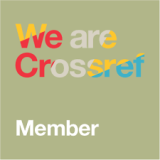Zakat Pada Masa Pandemi Covid-19: A Systematic Literature Review
Abstract
Covid-19 causes a wide range of economic, health, and social change problems globally. As a result, countries are no longer orderly in allocating development budgets because they are focused on tackling the covid-19 pandemic. This research aims to map the topics and research issues on zakat during the Covid-19 pandemic. The method used was Systematic Literature Review (SLR) with analysis using the Vosviewer application. The 31 articles reviewed were sourced from the Scopus database from 2020 to 2023. The results revealed that there were 31 researchers who examined zakat during the Covid-19 pandemic. Indonesia is the country with the highest number of studies on zakat. This was triggered by the massive utilisation of zakat funds for covid-19 prevention after the issuance of the fatwa by the Indonesian Ulema Council. At the zakat collection stage, the topic of Person and Community is an issue that is widely researched because of its influence on zakat collection. The Model topic becomes an important issue at the zakat distribution stage which can be channelled through Business Capital, Revolving Funds, and scholarships. For the latest topic, Lazismu and Zakatech are the main issues. Lazismu is one of the zakat institutions that massively overcomes the impact of Covid-19. Meanwhile, the digitalisation of zakat management is important to be applied for the future. While Lazismu and Model topics are also part of the dominant topics.
Keywords
Full Text:
PDFReferences
Abdallah, M. (2022). When a Crisis Empties Mosques: A Case Study of Muslim Responses to the Pandemic's Challenges in Regards to Spiritual Care and Communal Rituals in Austria and Germany. International Journal of Practical Theology, 26(2), 223-239. https://doi.org/10.1515/ijpt-2021-0034
Abdullah, F. (2022). analisis partisipasi masyarakat dalam memberikan zakat selama pandemi.
Ascarya. (2020). The Role of Islamic Social Finance in Times of Covid-19 Outbreak. PEBS-UI.
Bachri, S. (2022). Model of Zakat Utilization in the Covid-19 Pandemic Era: Perspective of Maqashid Sharia. Al-Istinbath: Jurnal Hukum Islam, 7(1), 241-264. https://doi.org/10.29240/jhi.v7i1.4462
Bin-Nashwan, S. A. (2022). Toward diffusion of e-Zakat initiatives amid the COVID-19 crisis and beyond. Foresight, 24(2), 141-158. https://doi.org/10.1108/FS-08-2020-0082
Bin-Nashwan, S. A., Ismaiel, A. E. A., Muneeza, A., & Isa, M. Y. (2023). Adoption of ZakaTech in the time of COVID-19: cross-country and gender differences. Journal of Islamic Marketing. https://doi.org/10.1108/JIMA-08-2021-0278
Bin-Nashwan, S. A., Shah, M. H., Abdul-Jabbar, H., & Al-Ttaffi, L. H. A. (2023). Social-related factors in integrated UTAUT model for ZakaTech acceptance during the COVID-19 crisis. Journal of Islamic Accounting and Business Research. https://doi.org/10.1108/JIABR-02-2022-0038
Cooper, H. (2009a). Fiqh az-Zakat. A Comparative Study. Dar Al Taqwa Ltd.
Cooper, H. (2009b). Research synthesis and meta-analysis: A step-by-step approach. Sage Publications.
Grant, M. J., & Booth, A. (2009). A typology of reviews: An analysis of 14 review types and associated methodologies. Health Information & Libraries Journal, 26, 91-108.
Hasan, Z. (2020). COVID-19 and Islamic Social Financing The Role of Zakat and Waqf. SSRN Electronic Journal.
Herianingrum, S., Widiastuti, T., Hapsari, M. I., Ratnasari, R. T., Firmansyah, F., Hassan, S. A., Febriyanti, A. R., Amalia, R. C., & Muzakki, L. A. (2022). Muzakki and Mustahik's collaboration model for strengthening the fundraising capacity of Islamic social finance institutions during COVID-19. International Journal of Ethics and Systems. https://doi.org/10.1108/IJOES-05-2022-0091
Khairunnisa, Ismail, Nur Imamah, Ririn Dwi Aryanti, S. (2024). KONTRIBUSI ZAKAT TERHADAP PEREKONOMIAN: SYSTEMATIC LITERATURE REVIEW. Jurnal PenKoMi : Kajian Pendidikan & Ekonomi, 7(1), 192-203.
Kitchenham, B. (2004). Procedures for Performing Systematic Reviews. Keele University.
Linge, A. (2015). Filantropi Islam Sebagai Instrumen Keadilan Ekonomi. (Jurnal Perspektif Ekonomi Darussalam, 1, 154-171.
MUI: Pemanfaatan Zakat untuk Penanggulangan COVID-19 Diperbolehkan - BNPB. (n.d.). Retrieved March 7, 2024, from https://bnpb.go.id/berita/mui-pemanfaatan-zakat-untuk-penanggulangan-covid19-diperbolehkan
Mursal, M., Ritonga, M., Sartika, F., Lahmi, A., Nurdianto, T., & Alam, L. (2023). The contribution of Amil Zakat, Infaq and Shadaqah Muhammadiyah (LAZISMU) institutions in handling the impact of Covid-19. Journal of Sustainable Finance and Investment, 13(1), 118-124. https://doi.org/10.1080/20430795.2021.1886550
Nuzila. (2021). Analisis Pengelolaan Zakat Di Masa Pandemi Covid-19. Jurnal Ilmiah Ekonomi Islam, 7(03), 1511-1517. https://jurnal.stie-aas.ac.id/index.php/jei/article/download/2692/1625
Pranoto, H. (2021). Peran lembaga amil zakat dalam mengelola zakat di masa pandemi.
Rahman, A. (2020). dampak pandemi covid-19 terhadap praktik zakat.
Tranfield, D., Denyer, D., & Smart, P. (2003). Towards a methodology for developing evidence-informed management knowledge by means of systematic review. British Journal of Management, 14, 207-222.
Umar, U. H., Baita, A. J., Haron, M. H. B., & Kabiru, S. H. (2022). The potential of Islamic social finance to alleviate poverty in the era of COVID-19: the moderating effect of ethical orientation. International Journal of Islamic and Middle Eastern Finance and Management, 15(2), 255-270. https://doi.org/10.1108/IMEFM-07-2020-0371
DOI: http://dx.doi.org/10.30829/ajei.v9i1.20134
Refbacks
- There are currently no refbacks.
Copyright (c) 2024 Nur Wulan, Ismail Ismail, Fitriani Fitriani, M.Saiful Rahman

This work is licensed under a Creative Commons Attribution-ShareAlike 4.0 International License.





3.jpg)






